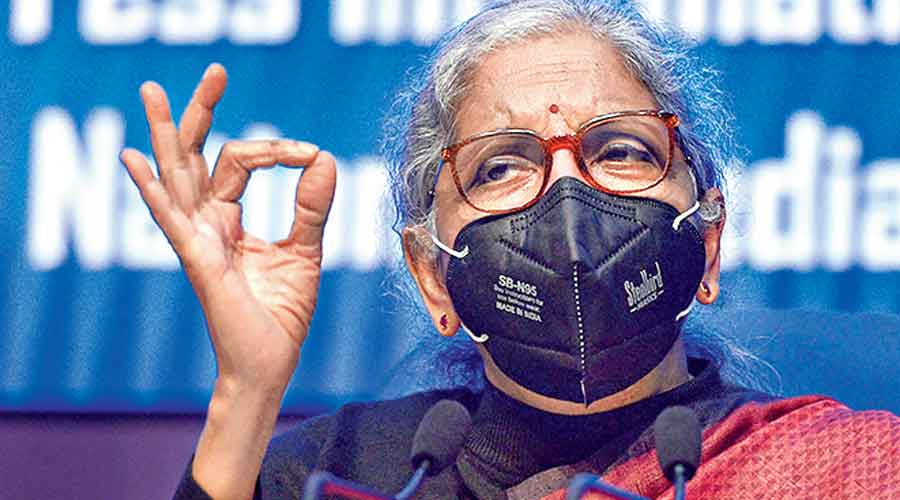The Supreme Court on Tuesday granted two weeks to the Centre and the states to submit data on starvation deaths after the Union government said it had no statistics on such fatalities and placed outdated reports to claim only one death over the past several years.
The court also directed the Centre and the states to formulate a scheme on community kitchens over the next fortnight to combat hunger and malnutrition.
Attorney-general K.K. Venugopal, appearing for the Centre, stated in the apex court that there was no official data on possible starvation deaths in the country.
Chief Justice of India N.V. Ramana, however, directed Venugopal to submit latest data after collating updated details from the states and Union Territories on hunger and malnutrition.
The bench, which also had Justices A.S. Bopanna and Hima Kohli, asked the AG: “Can we understand there’s no starvation deaths in the country?”
Venugopal replied: “There was a newspaper report about a child who died (in Chennai in 2015-16) and it was found it was due to starvation. There was that one case. The government of India’s stand is they are spending huge amounts of money (to address malnutrition).”
He cited affidavits filed by states that mention that there have been no starvation deaths.
Justice Kohli asked the AG: “Why is it that the central government is relying on a 2015-2016 report for starvation deaths. Are you saying there’s no starvation death in the country except for one? Can we depend on that statement?”
Venugopal responded that the states should be asked to file fresh affidavits on the matter.
“Let the states collate and give it to you, you can file it,” Justice Kohli said.
During Tuesday’s hearing, the top court noted that the National Family Health Survey report of 2019, placed before it by the petitioners, had indicated that malnutrition was also a cause of deaths that year.
But since the report was old, Justice Ramana asked AG Venugopal to place before the court the latest data.
“Mr Attorney General, please understand, we are not going to frame a scheme today itself or direct you to form a scheme. Let the government of India give us some data about starvation deaths, latest information. Ask your officers to furnish that information,” Justice Ramana said.
The AG agreed to do so but said the affidavits filed by the states did not indicate any starvation deaths.
The CJI, however, noted that the states had taken the stand that if the Centre provides the money, they are willing to take up the task of addressing hunger and malnutrition.
India had slipped to the 101st position in the Global Hunger Index 2021 of 116 countries, from its 2020 position of 94th. It was placed behind its neighbours Pakistan, Bangladesh and Nepal. The Narendra Modi government had expressed shock at the report and termed the methodology “unscientific”.
The bench was on Tuesday dealing with a PIL filed by social activist Anun Dhawan and others for setting up community kitchens across the country to provide food to lakhs of people facing starvation and hunger, particularly those who do not even have access to the public distribution system. According to the petitioners, the problems had been compounded by the pandemic.
States like Delhi, Jharkhand and Madhya Pradesh are already running community kitchens while several others have agreed to address the issue provided the Centre gives the requisite funds, the bench said.
“We are saying why don’t you think of some model scheme? We made it clear that we can’t make a universal straitjacket scheme, it depends on many factors. You can make a model scheme and leave it to states, if they want to implement, they will,” the CJI told the Centre.
The counsel for the petitioners, Ashima Mandla, said starvation deaths could be detected only if autopsies were conducted in such cases. She suggested that the court appoint an expert committee to formulate a suitable scheme to address the matter.
The court later adjourned the matter for three weeks.
During the earlier hearing in November last year, the bench had told the Centre that the first principle of every welfare state was to ensure that none died of starvation.
“We are concerned about hunger and people. See, if you want to take care of hunger, no Constitution or law will say no to it. This is the first principle. Every welfare state’s first responsibility is to provide food to people dying to hunger,” CJI Ramana had observed.
The court had added: “We can’t leave the people in the lurch and say everything is fine. We are not happy with the affidavit filed by the undersecretary of the government of India.”











